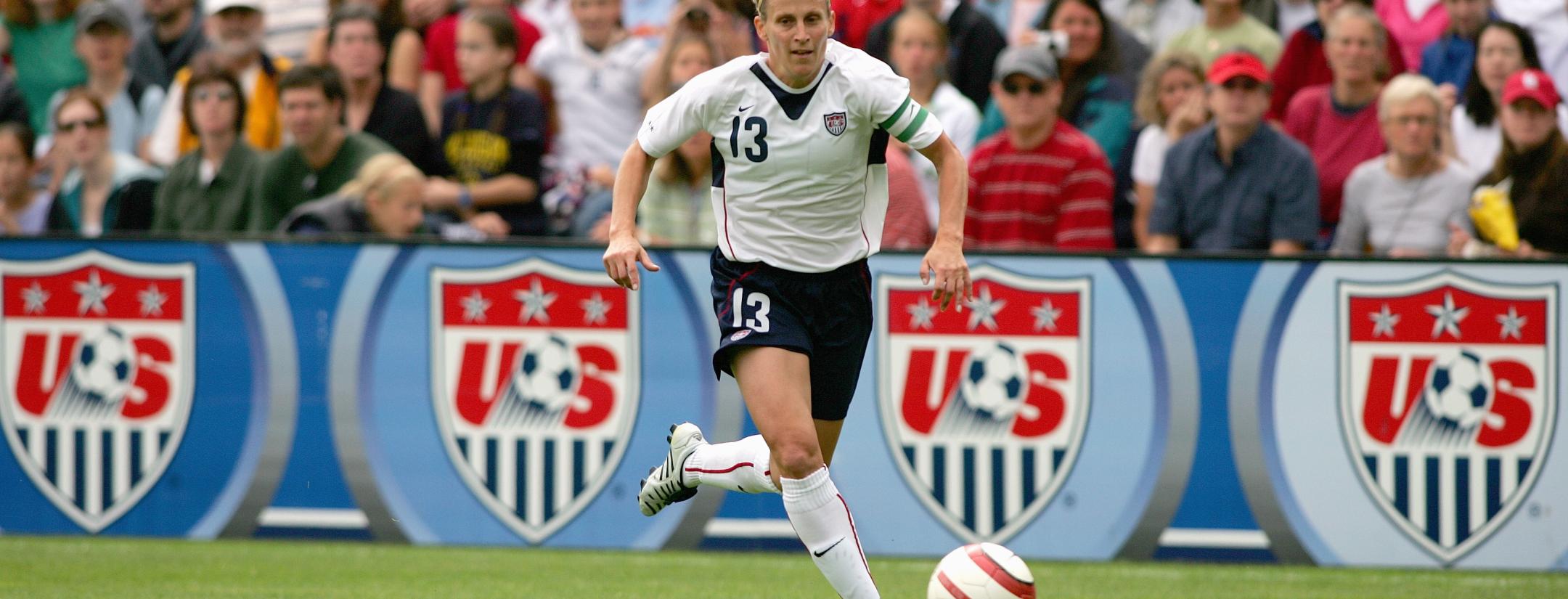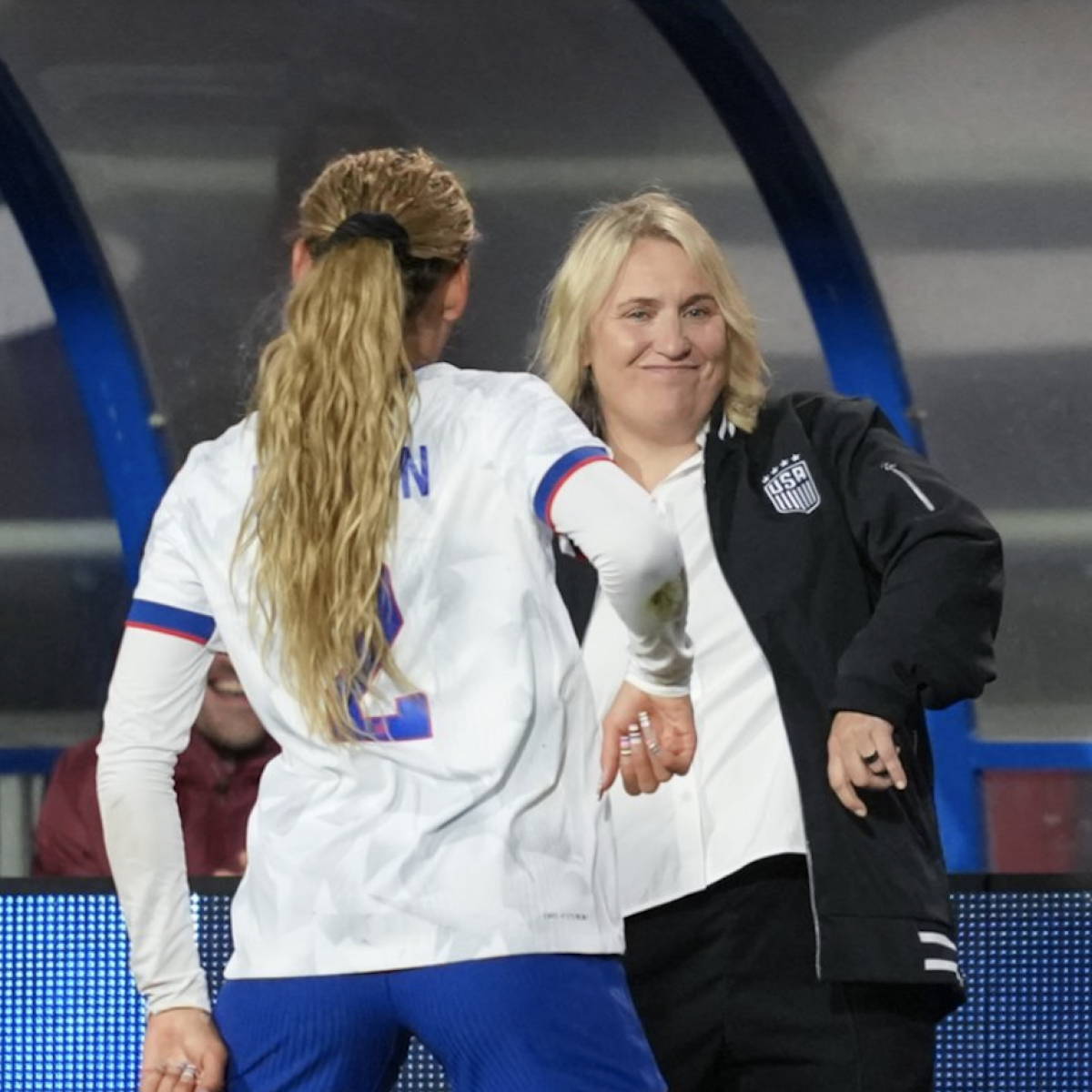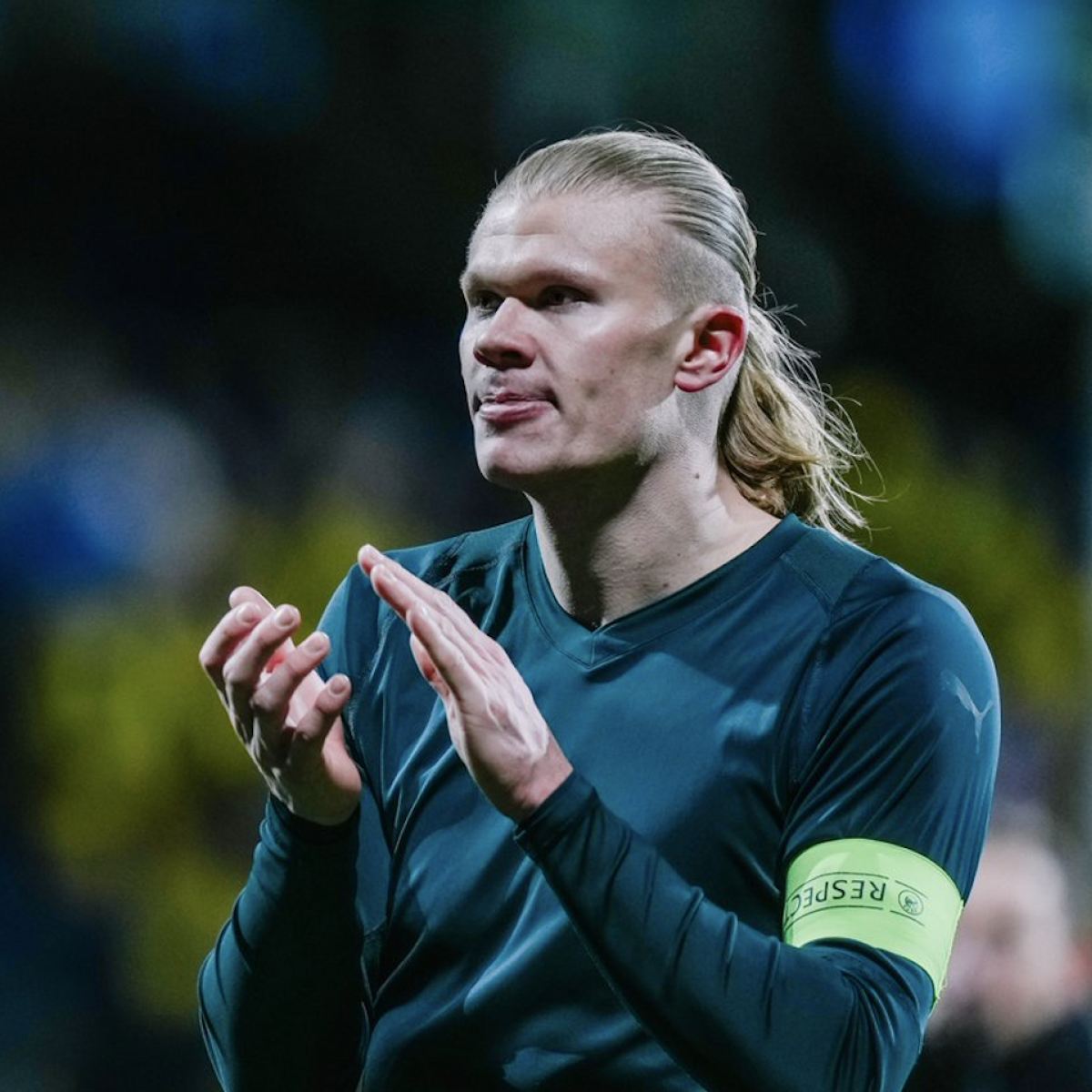There are few athletes in the world who have won as much as Kristine Lilly.
She’s got two Women’s World Cup trophies, two Olympic gold medals and four NCAA championships. She appeared in more international matches than anyone in the world — men or women — while playing for the most dominant team in the history of sport.
So when it comes to unifying as a team to achieve a goal, there are few people better qualified to talk about what it takes to succeed than Kristine Lilly, now 47, which is exactly what she’s setting out to do with her new book “Powerhouse.”
Lilly debuted with the USWNT while she was still in high school in 1987. She finally hung up her boots in 2010 at the age of 39 after setting a world record with 354 international appearances. For a bit of perspective, the most international appearances by any one male player is 184 by Egypt’s Ahmed Hassan.
Lilly did more than just appear in matches — she created goals. She played a part in 236 goals over her USWNT career. Lilly ranks fourth in the world (third in the U.S.) with 130 international goals. She’s second on the USWNT assists list with 106, only trailing her friend and business partner Mia Hamm.
Lilly’s new book, “Powerhouse: 13 Teamwork Tactics That Build Excellence And Unrivaled Success,” comes out on May 7, exactly a month before the Women’s World Cup kicks off in France.
Co-written with Dr. John Gillis Jr. with additional insight from Dr. Lynette Gillis, “Powerhouse” takes a research-based approach to examining how Lilly’s experience with her teammates on the pitch can be used to help in business and life off the pitch. Based on her jersey number with the USWNT, the book has 13 chapters, each ending with a message from a former teammate or business leader to bring the point home. (The reason Alex Morgan wears No. 13 is because of Lilly.)
“I think it’s a great tool to help you be a better teammate,” Lilly told The18 about her book. “I think when we look at the world these days, I think we all need to come together a bit more to achieve our goals and to feel good.
“That’s what I felt like when I played for this U.S. team — I was a part of something bigger than just being this team and what we could achieve when we really came together and set our foundation or our goals to be the best, so hopefully it will help others feel that way too.”
The18 caught up with Lilly and spoke with her about her new book, the USWNT and the upcoming 2019 Women’s World Cup.
Q&A With Kristine Lilly
The18: What made you want to write this book?
Kristine Lilly: I think it was a couple things. I think one, I got to experience what it was like to be on that team and the success we had and continued success we had and realizing how great it was and how, wow, it’d be something that’d be great to share. Then I started a camp company with Mia (Hamm) and Tisha (Venturini), two teammates of mine, called Team First Soccer Academy and basically got that name to basically share that, that’s what we did.
Then I thought, this would be great to share with the business world too and that’s where my co-author comes into play, Dr. John Gillis. He’s in the business world and thought this would be great for you to share stories and to impact the business world where sometimes it’s more focused on individual development instead of overall team development if you’re part of a management group or whatnot or even own a company and want to have it grow better. All those things came into place and for me it’s just a great opportunity to share the story of the U.S. women’s national team.
Having been on the USWNT for so many years, what kind of perspective did that give you on various dynamics of teamwork and chemistry?
I think the one main thing is you can’t do anything by yourself. You need teammates and you need others to help you succeed in what you want to do but also what you want to do as a group. So that’s what I got from the team. In addition, what I got was I was surrounded by women that were like myself.
I went through my younger career playing mainly with boys. I finally came to a group of women that were similar to me — they were competitive, they wanted to train, wanted to be the best, were strong, were kind, were smart, were hard working — and now I joined a team that had all that and I was like, “Holy cow, this is amazing.” Then from there it was a 23-year career where I was part of something bigger than myself.
We were training to be the best in the world, and we did that but then we were coming together and making impacts outside of sports as well. It was a wonderful time and wonderful group of people to be a part of.
How would you describe “Powerhouse” in brief?
There’s 13 tactics — obviously we’re playing on my number. Basically, it’s different ways that you can continue to help your company to be better. Some of it’s chemistry, some of it’s communication, some of it’s having great foundation or goal setting. So some of those areas you can be fine in but maybe one of them you’re lacking in and you can read the chapter and at the end you get a personal story from one of my former teammates that shares why we were successful with the communication we had and what we did.
I think we could add just a little bit to an area where you’re weak and we can help you, “Oh, maybe we can do this; look at what the U.S. women’s team did,” and just refresh your memory to be more successful in that area and that overall will help your company, your organization or your team or your household even.
You’re not the first former USWNT player to write a book. Did you talk to any of your former teammates before writing this?
I actually did talk to them and they were excited. I think the biggest part that excited me about this whole process is when I was telling them about writing this and sharing the stories and their perspective as well, they were like, “Let me know when you need me.”
That reiterated even more how powerful that team was and how great that team was because it wasn’t like, “Oh, I’m busy, I don’t know if I can do this.” It was “Let me know,” and that just goes to show what kind of teammates they were and still are. That was a really cool part of the process for me.
How close are you with your former teammates still and what was it like reuniting with the other 1999ers during the recent USWNT-Belgium friendly?
That was the first time we’ve all been together — I think there was one other time soon after we won — that we all got a chance to be together in 20 years. It was awesome. It was so fun, and we were back to just being back in that time and we were laughing, we were busting on each other and just enjoying each other’s company.
We don’t get to see each other like all of us together. Email, social media keeps us all connected and we support each other’s ventures, whether coaching or doing other things. So we definitely are connected but that weekend was really awesome just to be all together and laugh and reminisce and have our kids play together. So it was neat.
You’ve got more experience in international soccer than anyone in the world. How did that help you craft this book?
I’ve been around the game for a while and I think I was a part of many successful teams. I’ve been part of teams where maybe we missed winning by this or that, so I think I have a great perspective on seeing what works and when it didn’t work what was missing.
Just being on a national team that was just successful and to be on those different generations of teams and be like, “Holy cow,” even in ‘91 when we won the first one, we won in ‘99 and then this team wins in 2015 and just the success the women’s team has had even after I’ve been gone just shows there’s a strong foundation on the team to be the best and the mentality of those players going into it.
I’m just fortunate I had the time there and just experienced the highs and also the lows because that’s how we do grow from those experiences as well.
How do you explain your longevity in the sport? How do you spend your time now that you’re retired from soccer?
My grandmother lived to be 92 and she never had a license, she always walked everywhere so I think I had good genes coming from her. We all try to take care of ourselves. The core of my career was my fitness; I was always fit, maybe that helped.
I don’t know what exactly what it was, but I know that it was a lot of work; a lot of work was put in, a lot of sacrifices and dedication to the game that helped me have the career I did.
Now I’m just trying to stay in shape. I’m trying to be as fit as I once was, which won’t happen. And I coach my kids; I coach soccer. I’m around young people a lot, which keeps me young, and I travel with Mia Hamm and Trisha Venturini with our Team First camps and teach kids and promote the game as much as I can.
And be an example. Also with this book it’s great to have more females out there sharing experiences because if we’re not visible, if other girls don’t see women doing it, they don’t see the examples so I think it’s just great also to be an example for young people, whatever avenue they want to pursue.
So, which of your 354 caps was your favorite?
321. No, just kidding.
I remember my first and I remember my last. My first I won and scored a goal, my last we lost and we didn’t qualify straight up for the World Cup, so those are the two most memorable.
But I don’t (have a favorite). For me what’s neat about the whole 354 caps is in the process I didn’t realize I ever played that many. My teammates when I hit 100 were like, “Oh, 200!” I was like, “Yeah, yeah.” And then I hit 200 and they were like, “Wait until you get to 300” — and then I got to 300. It was never a goal to see how many caps I could play; it was just a goal to be a part of that team and to maintain my starting status and contribute to the success of our team.
Which cap was your least favorite?
Probably my last cap, when we lost. That and the 2000 Olympics when we lost in the semis and a loss in the 2003 World Cup in the semis. I think the losses kind of stand out. It’s funny how the losses stand out more clearly than the wins sometimes.
What’s your favorite Michelle Akers story?
It’s not maybe just one story, it’s just the character of Michelle. I think Michelle’s probably the best women’s soccer player ever. I think any generation when I think about the impact she had on the field and the commitment she had and passion for the game, she was incredible — technically sound, strong, dominated in the air, she could dominate the attack, she was a dominant defender and she was funny.
Stories back in the day: We used to go to meals and we’d all have to wear the same stuff, so we’d have the same color shorts and shirt. Michelle would never know what we were in so we’d be like, “Oh yeah Michelle, today we’re wearing blue shirts.” And then she’d be the only one in blue and we’d all be in red. So she was pretty gullible in a sense to pull some pranks on her. We always could get her that way.
But I remember I always liked to train against her because she was so good. We were similar in speed so we did a lot of speed training together. Whenever she had the ball, you stepped your game up. You step your game up for anyone, but Michelle was just so dominant I was like, “I’m not letting this girl get by me.”
So she raised the level of all of us when she played. She was a great competitor and fun to play some pranks on as well.
You started playing with the USWNT before many of our readers were even born. What are the biggest changes you’ve seen in women’s soccer since you started out in the 80s?
I just think the overall growth of the game in all levels — the play’s better, the fan support is better, the coverage is better. We weren’t on TV; the games are on TV now. There’s social media that connects the players to their fans.
A lot more countries are backing their organizations, their government bodies that support the women’s side. You can see that in this World Cup in 2019, there’s 24 teams in the World Cup, four more teams that will be in their first World Cup (Jamaica, South Africa, Chile, Scotland). These first timers, it’s huge for them, not only just to be in there but just what it’s going to do for their countries when they go back and the support from organization because now they’re going to be like, “Well our team just competed in the World Cup, now we’ve got to continue to support that to make them keep having a chance to be the best.”
That’s just great to see that growth and just the love of the game being spread out. You can see more of the women’s games on TV or social media and you can see some great soccer. But just the passion and love that we have for the game and now people can really capture that on any source of media and young girls can be like, wow I can see more than this. And it’s not just saying, “Hey did you see Messi play today?” Now you can say, “Hey did you see Alex Morgan play?” So that’s great.
Where would you like to see the game go in the future?
Continue to have a stable professional league where we’re not constantly asking for support and we get the sponsorships and then the fan support that is needed to keep it running. That’s what all the pro leagues have is stability through their fans and sponsorships. So that would be incredible to have.
Then to continue to just keep doing what’s right; everything about the women’s game, just do what’s right. Don’t make us be like, “Oh now we’ve got to fight for this again or that.” So that would be incredible.
And to see the World Cup continue to grow, more teams being able to compete at the highest level and something that every soccer player would love to be in would be pretty amazing.
What’s your view on the USWNT suing U.S. Soccer for gender discrimination?
I think it’s just going along with what I said: keep doing what’s right. Obviously, I’ve been through the process during a time when we weren’t getting anything, and we didn’t realize we had a right to being paid or just the things we weren’t getting.
Now when I see the women standing up and continuing to fight, I think it’s tremendous. They have a platform to do it, they have the right to and they’re fighting for it. The discrimination, it’s not just the pay salary, it’s also back in the day we used to wear men’s uniforms. Now obviously they have their own, it’s just those little things that add up. It’s not getting middle seats on airplanes but getting an aisle if you need it. Or not getting economy and getting business class on European trips, those are the stuff that the men have always gotten and we didn’t realize.
I think the women are fighting for equality in all aspects of the game itself.
What do you think of the current USWNT? How do you think they’ll fare in France this summer?
I always bet on the U.S. I always believe if we play our best, it’s hard for teams to stop us.
Obviously, I think our biggest challenge is just being healthy and I think that’s every team. You go through training for four years and you get to a point where they’re now under two months out. Being healthy is really the most important thing. They’ve done the work for fitness; they’re not going to get much fitter before the World Cup starts. All that work’s been done, now it’s staying healthy, coming together as a team, gelling and making each day and each game they play their best, because that’s what it’s going to take to win a World Cup.
Do they need to read your book?
I think they do! I think everyone does!
I think what’s great with this book is it shows how important teamwork is and how the little things matter. I think in part of my book we talk about my header in the World Cup in 1999. It’s those moments — that’s not just the only moment that’s the reason we won in '99, but it was a moment and if I didn’t do it, it would’ve affected us differently. Just as if Brandi didn’t hit her PK or Bri didn’t make her save — all these little moments add up to success and I think if teams remember that, and that each person matters, it is really a strong way to look at the aspect of being a part of a team.
How does this USWNT compare to ones you’ve been on in the past?
We were just with them; they seem to have a great camaraderie with each other, the chemistry seems good. That’s coming from an outsider; you don’t know what it’s like unless you’re inside the circle.
But there’s a lot of talent. They seem to be having some fun and they’re playing some good soccer.
I’m hoping they have the same feeling we had when we played, surrounded with players like I was. That’s what I loved the most was the players I played with. Obviously the wins is what we were striving for, but it’s the players in the end that you appreciate.
How does Alex Morgan compare to other U.S. forwards in the past?
Alex is great. She’s the forward, she’s repping 13 pretty well. She’s carrying the game.
She reminds me of Mia (Hamm) the way she carries the game of soccer on her shoulders in the public eye. She’s promoting it, she’s being a great representative/ambassador for the game of soccer.
That’s huge because that’s not an easy task. I watched Mia compete and be a goal scorer and carry that load. What you see in Alex is a goal scorer carrying that load too. In that sense it’s pretty great that she’s such a great ambassador for the game of soccer.
Who do you think are the favorites this summer at the World Cup (other than the U.S.)?
France, obviously. They’re hosting but also I think they’re playing pretty good soccer.
I think Holland is one of the teams I’m really looking forward to watching. They won the European Championships and I haven’t seen them play a lot. They’re coached by a former teammate of mine from North Carolina that played a year with me at North Carolina, Sarina Wiegman, so I’m anxious to see how she has her team playing.
And then you’ve got Canada, England, Germany, Brazil, Japan, Sweden’s always testing the waters, Australia with Sam Kerr, one of the best players in the world.
So you’ve got all these great teams. You’ve got to play each game the best you can because like that it could be over. I’m looking forward to the first round but more so the second round when the teams that are playing well are getting into the next rounds.
Where will you be watching the matches from?
I’m going to go over for the first game (France against South Korea). I’m going to go over for that then come back and work some camps and then hopefully I’m going to head over for the quarters or semis somewhere around there then the finals.
Kristine Lilly’s book, “Powerhouse,” is available for preorder now on Amazon.




